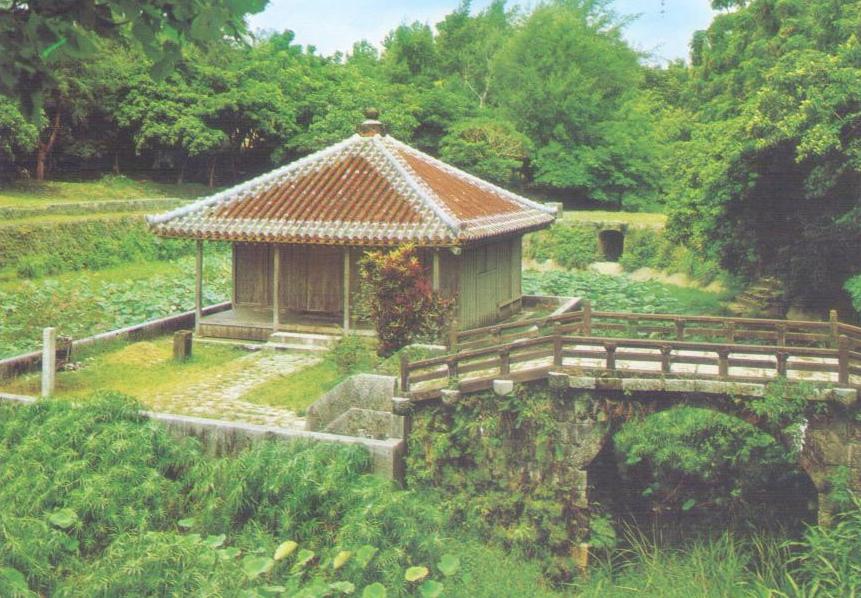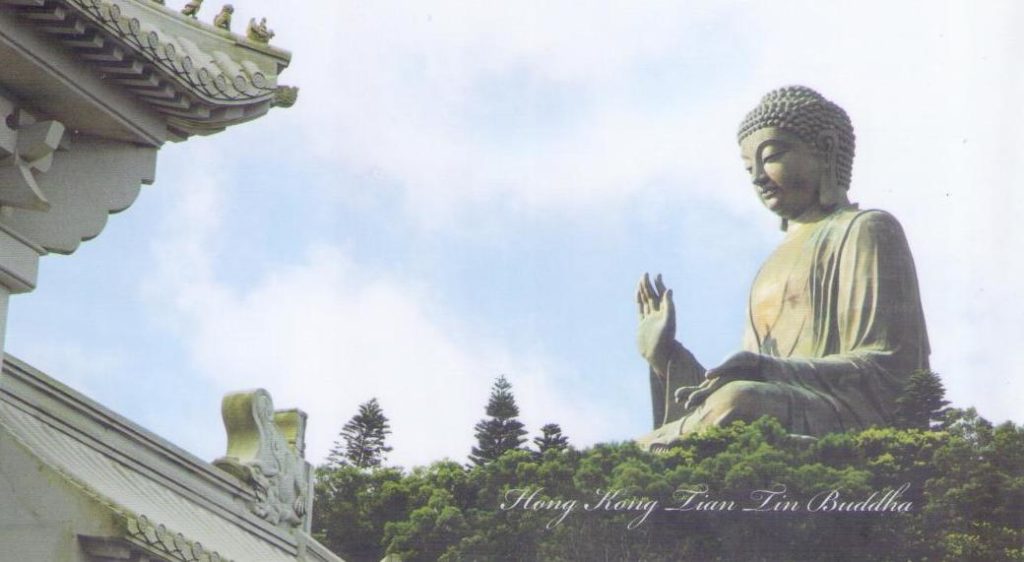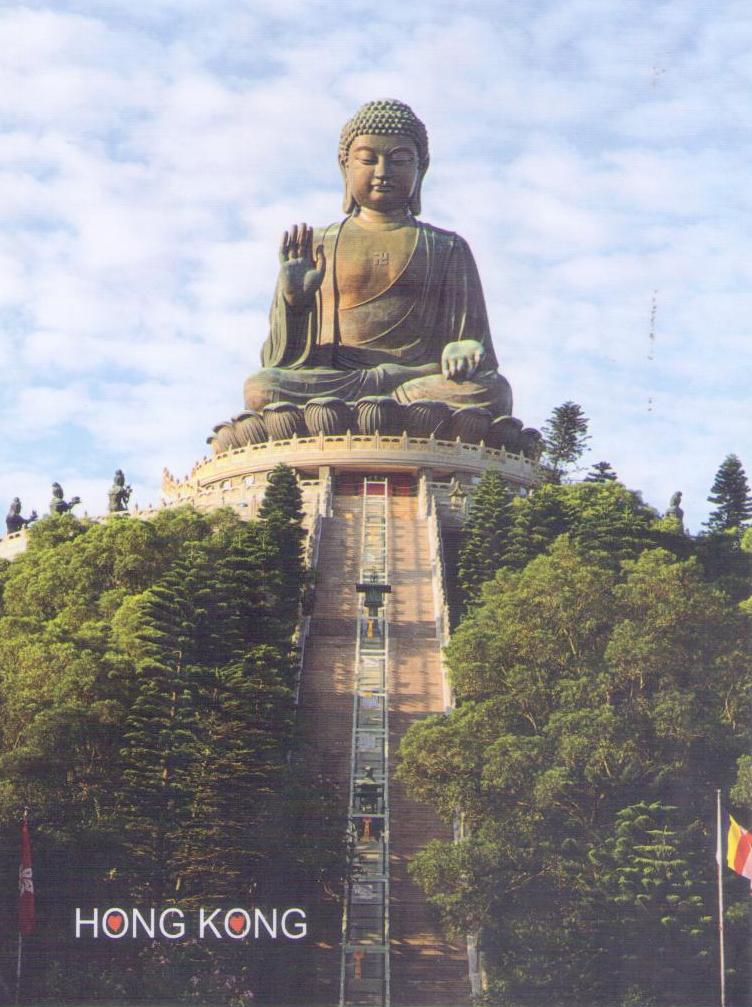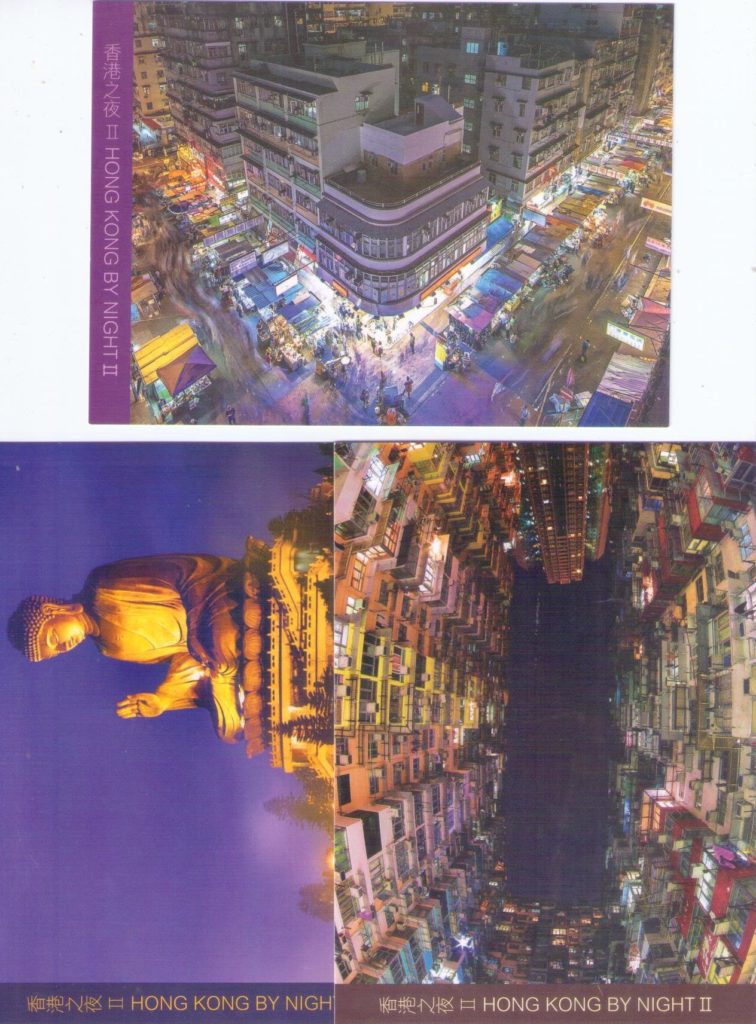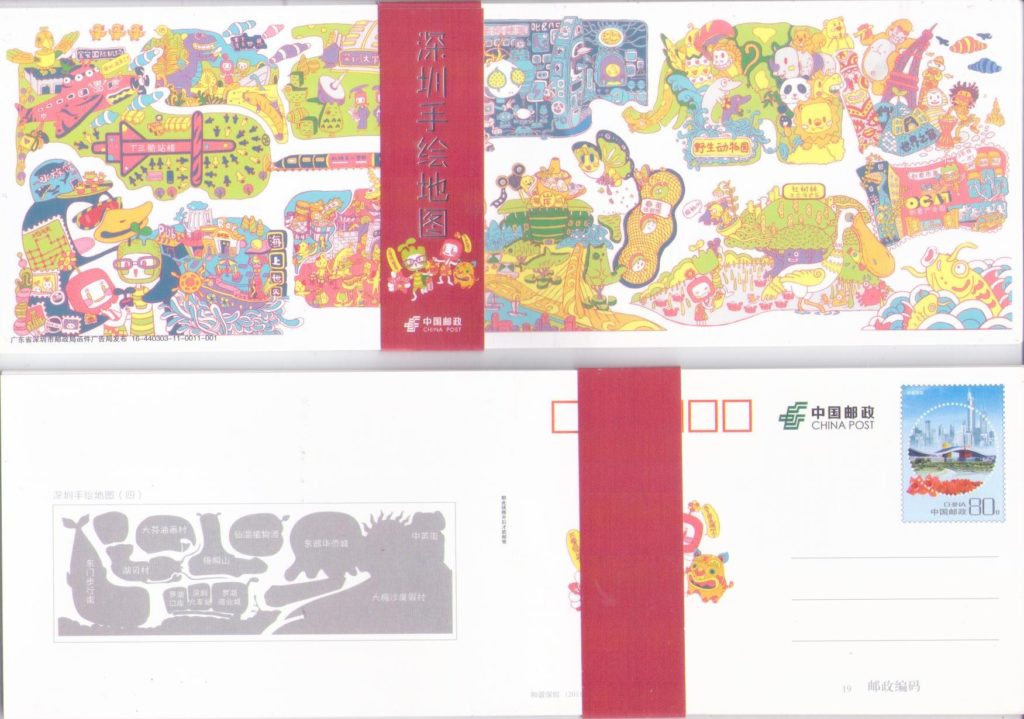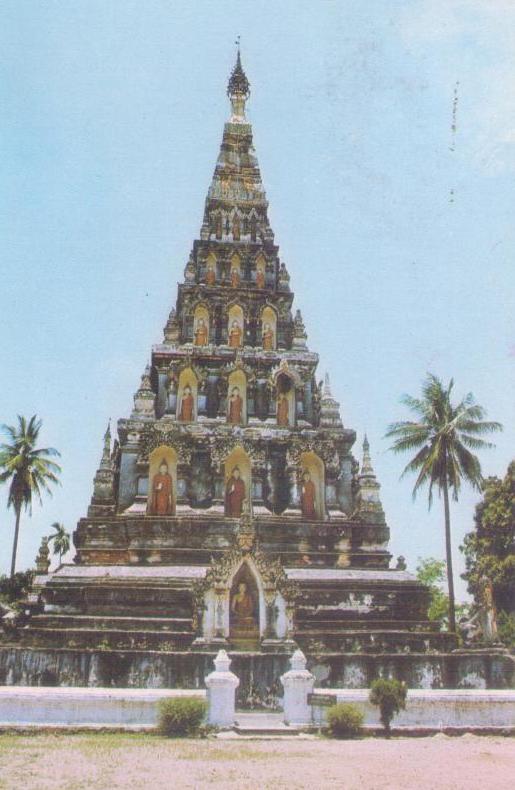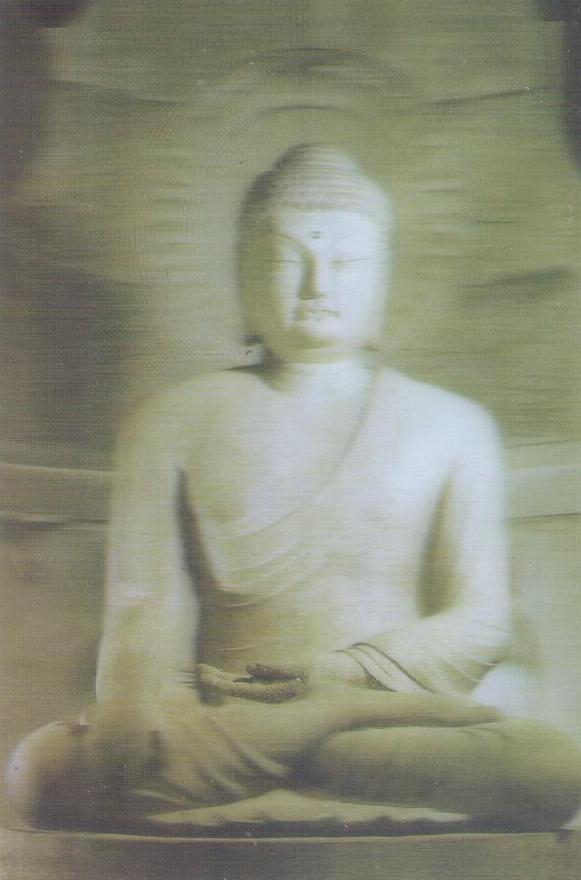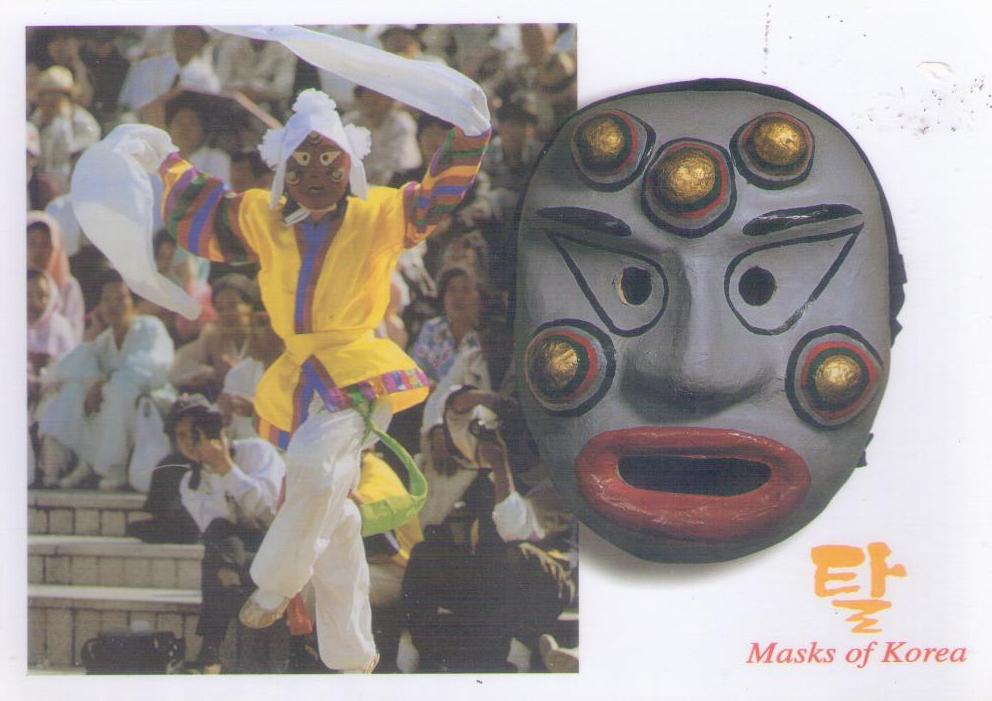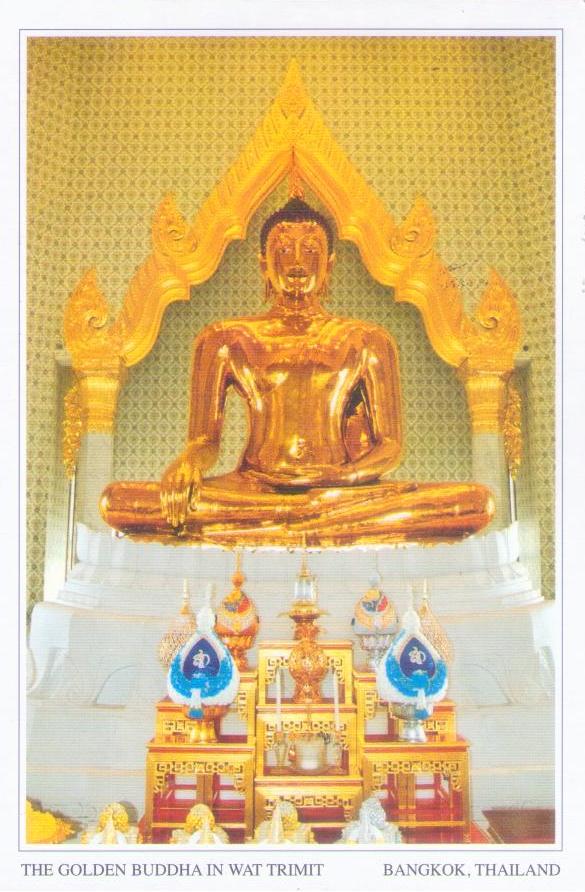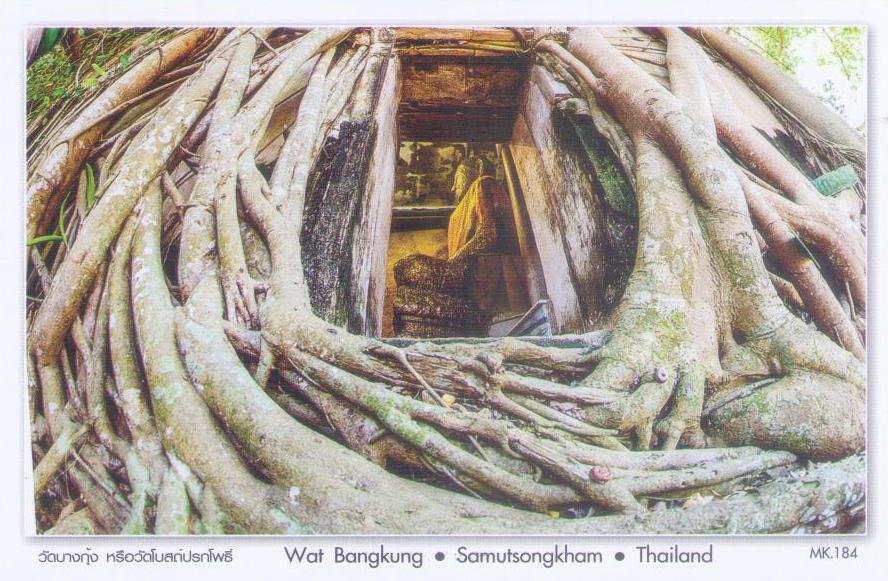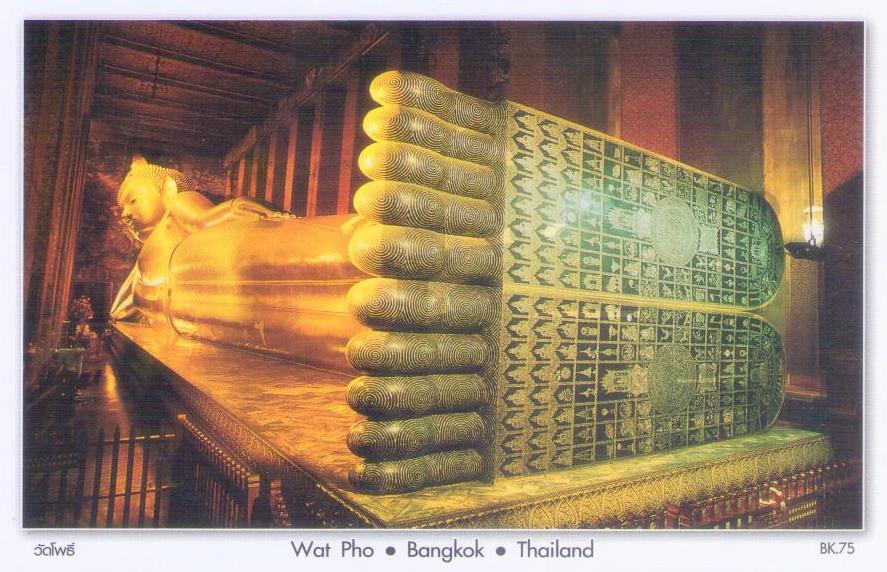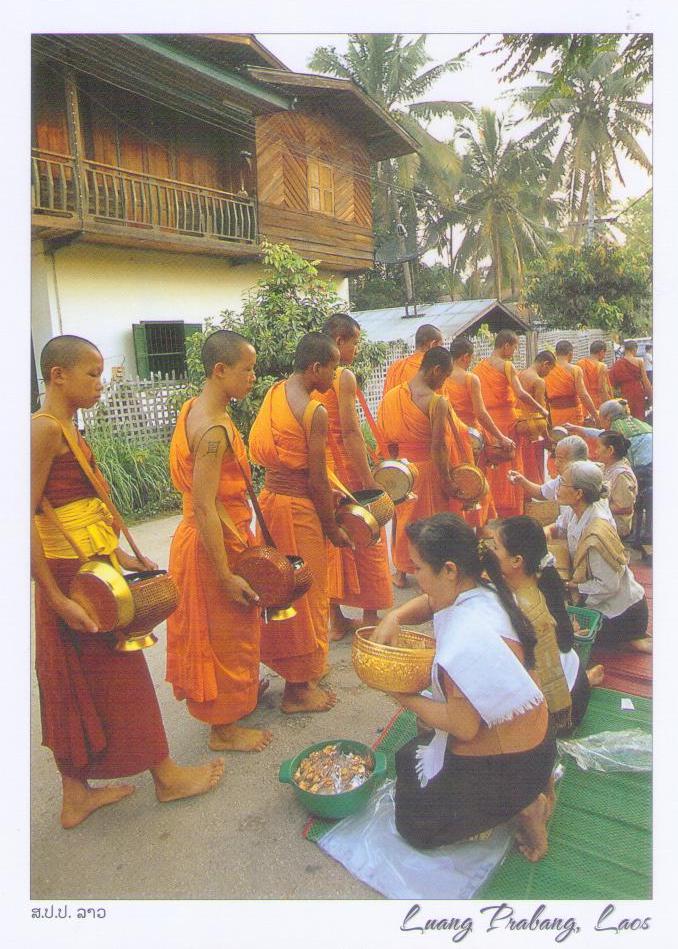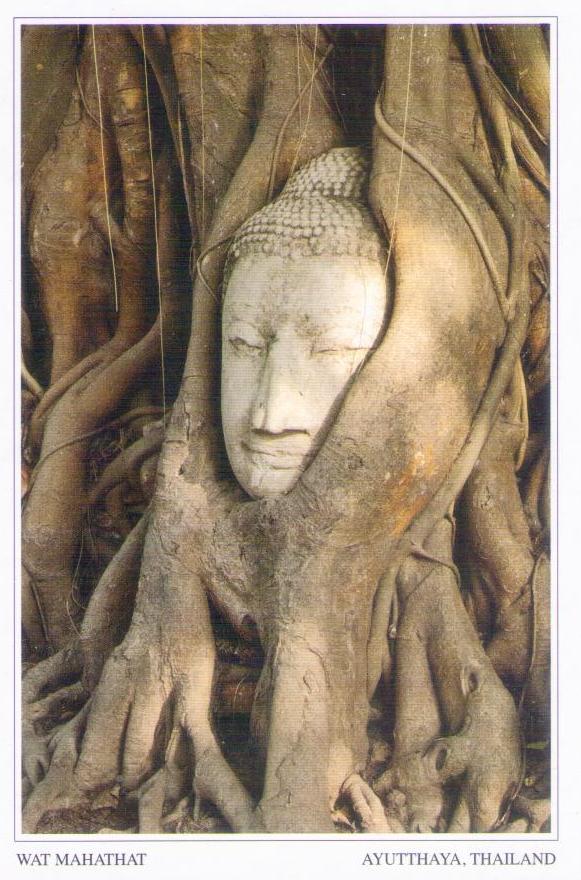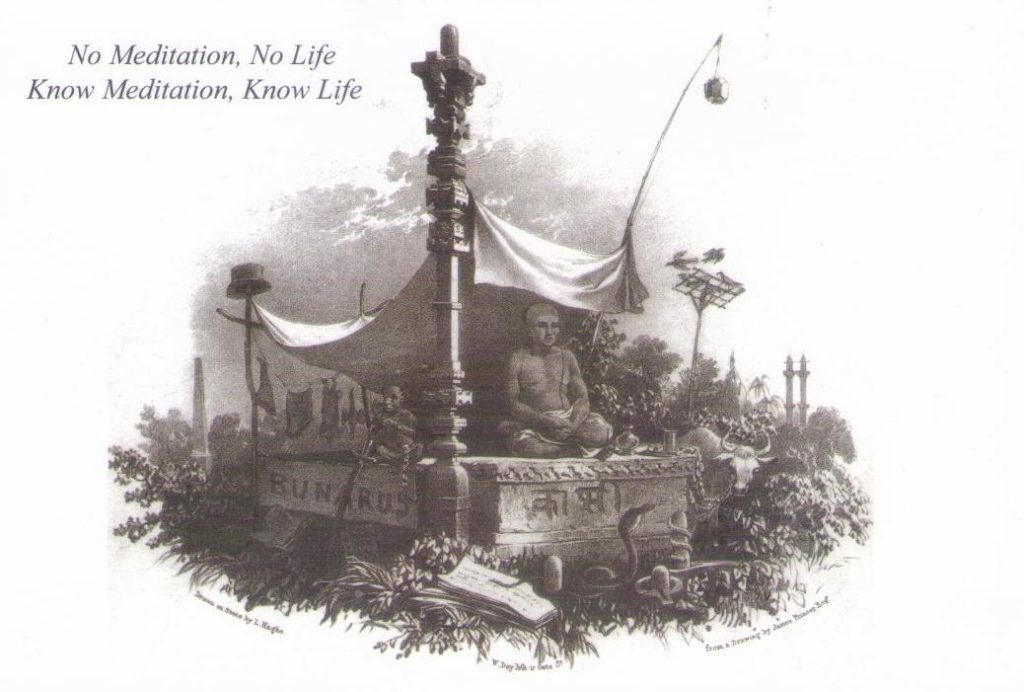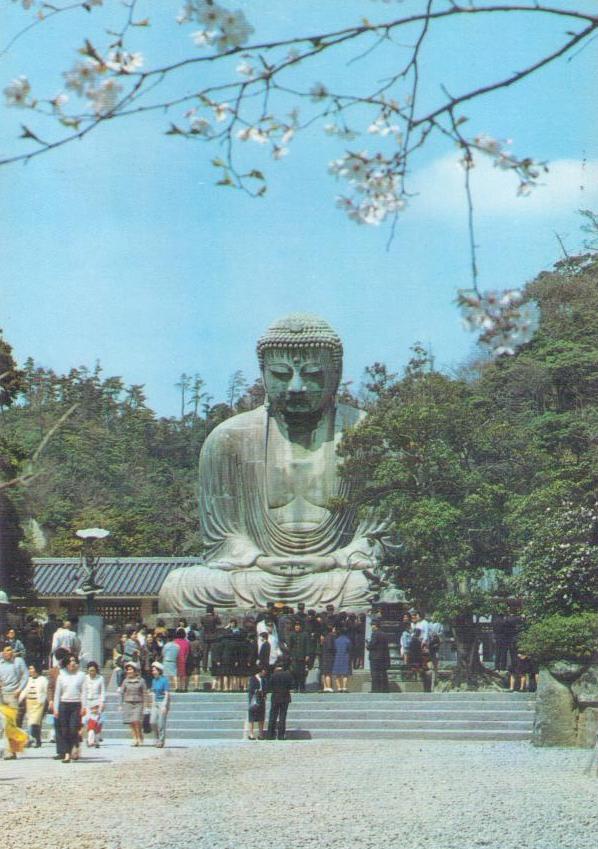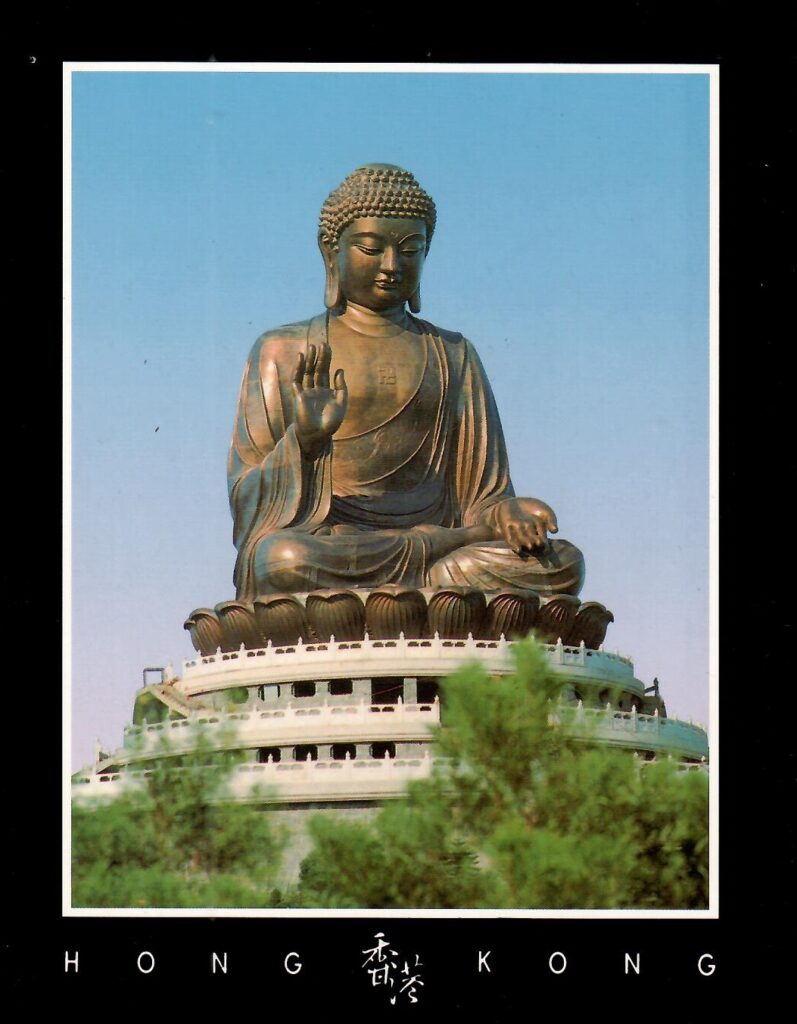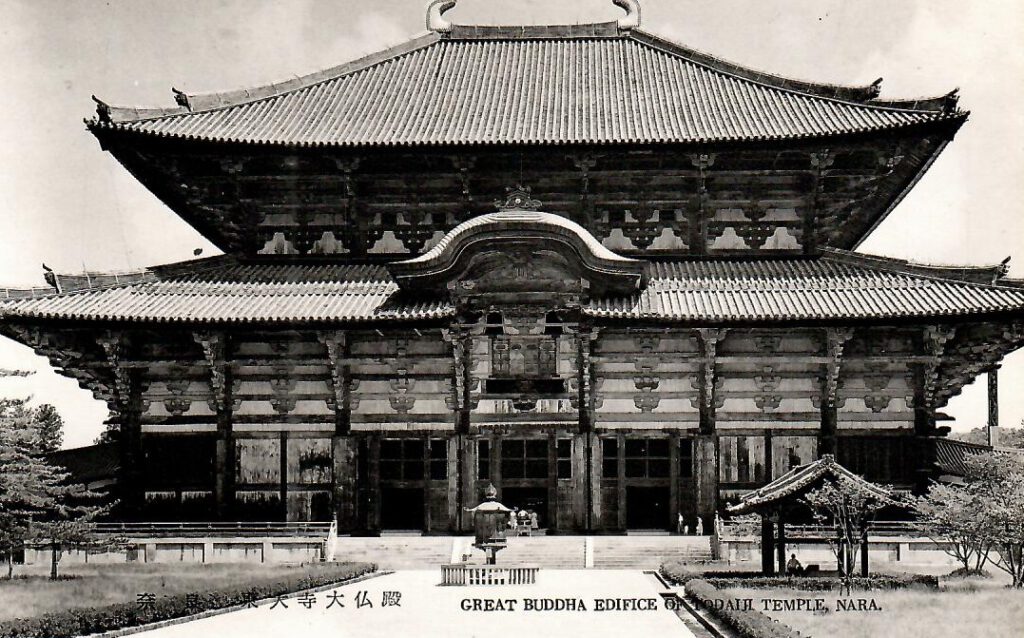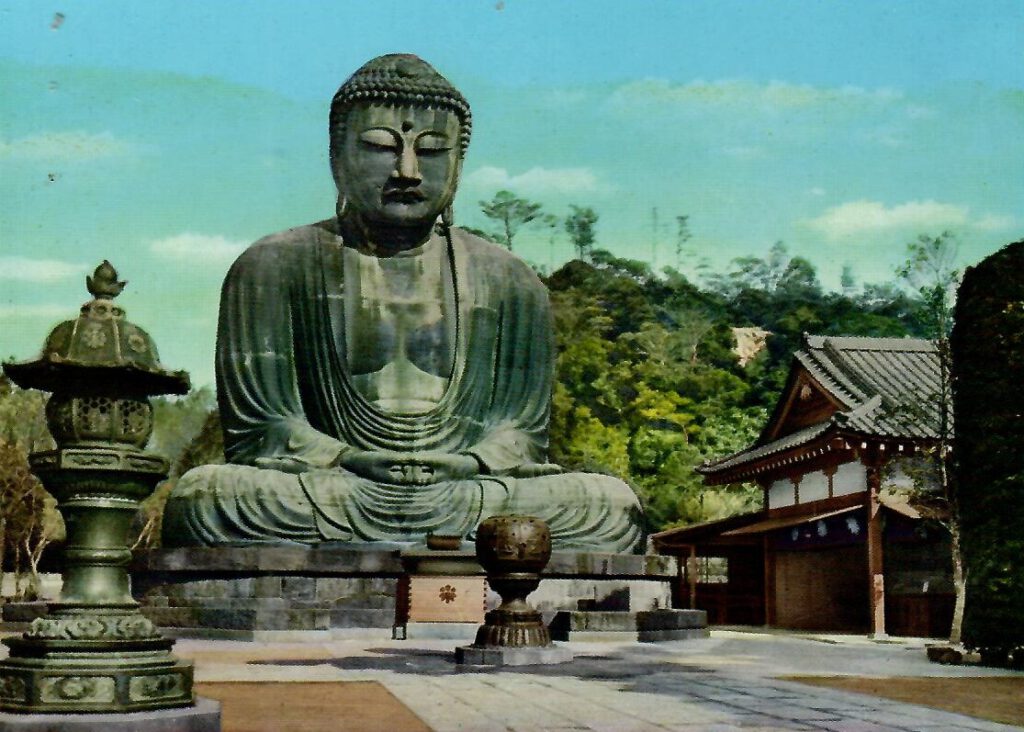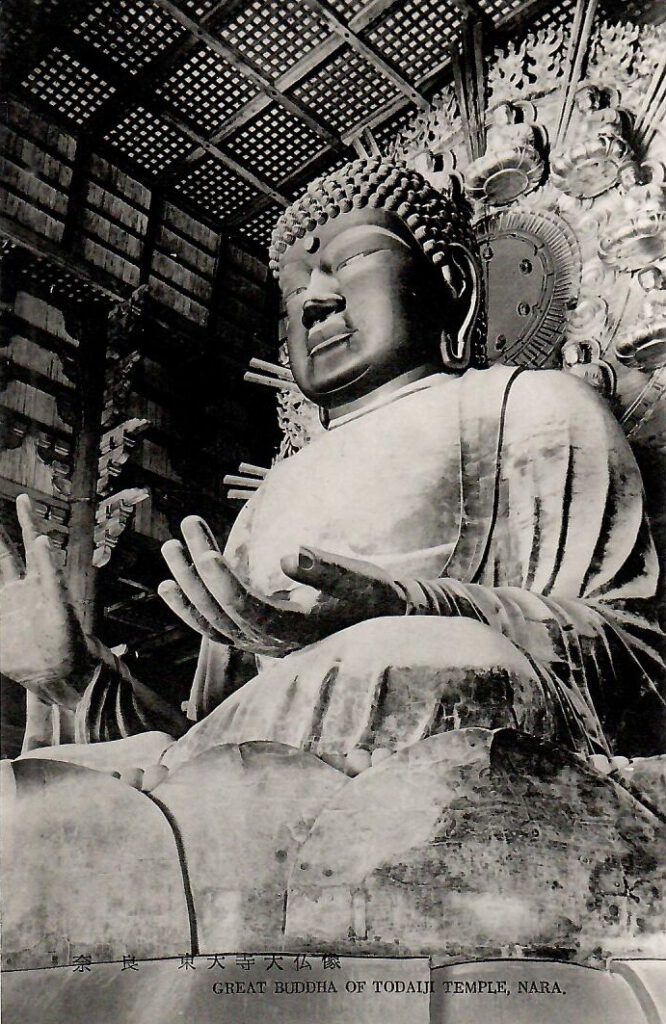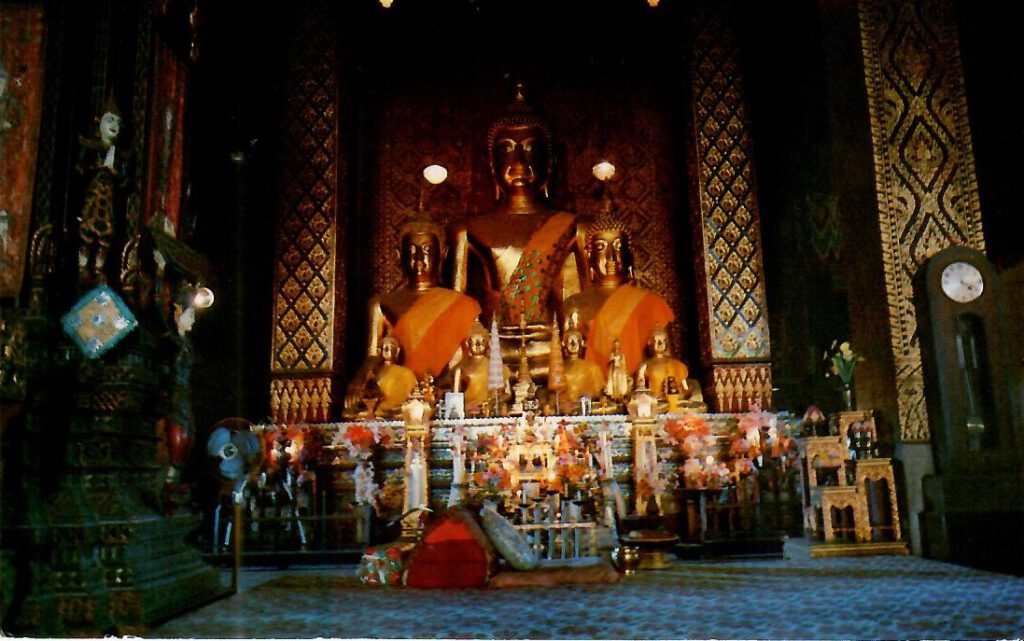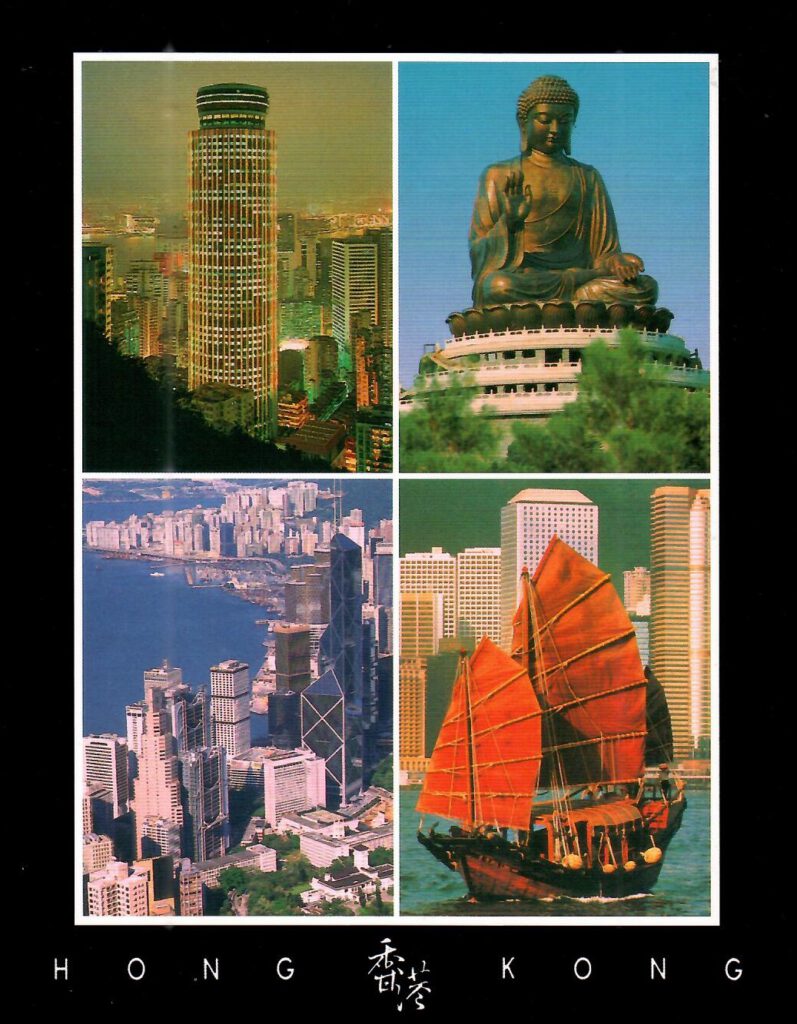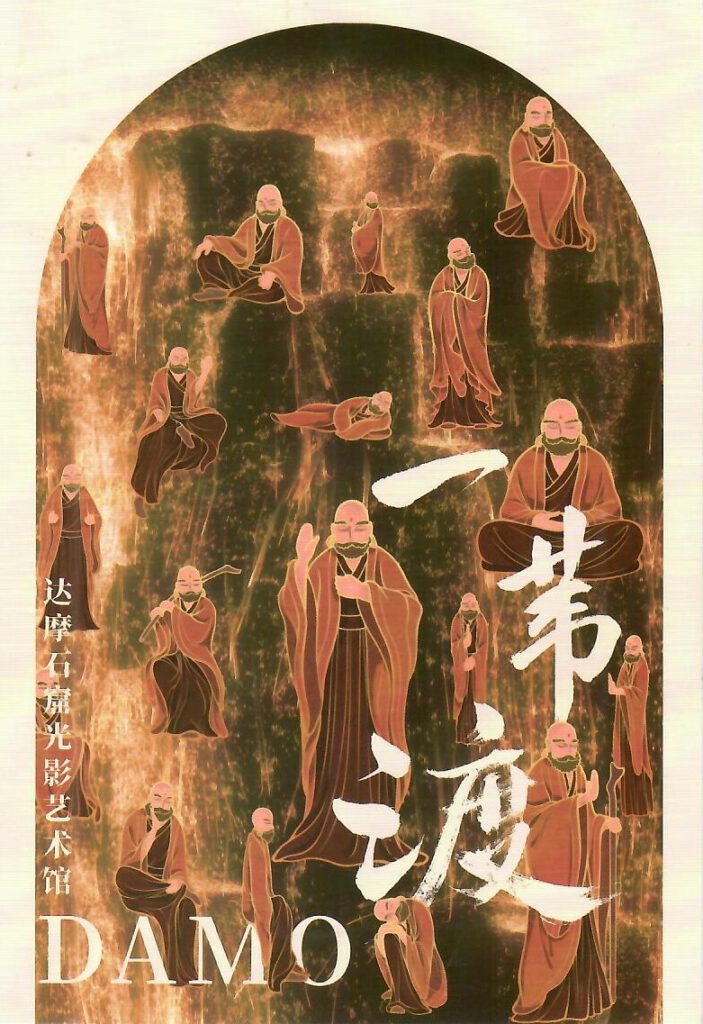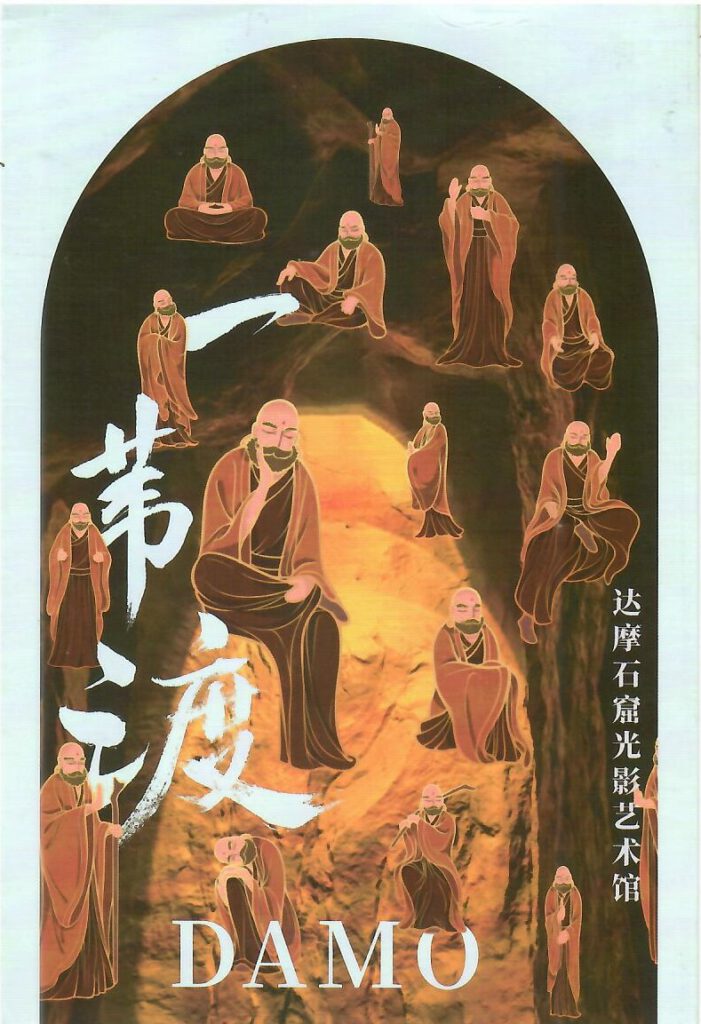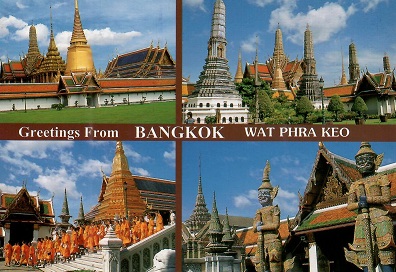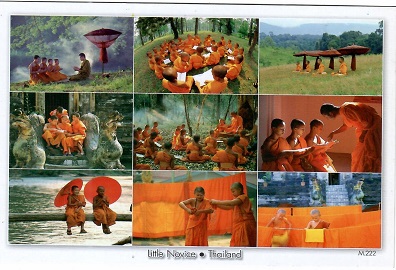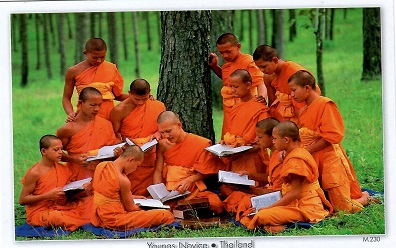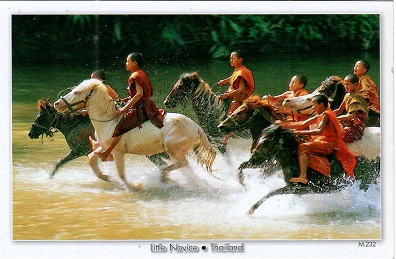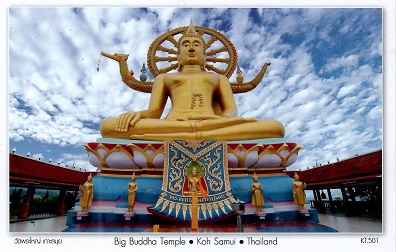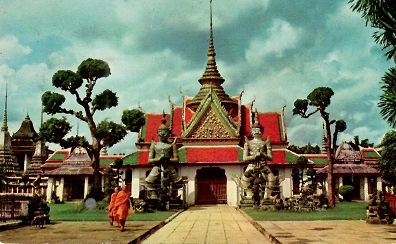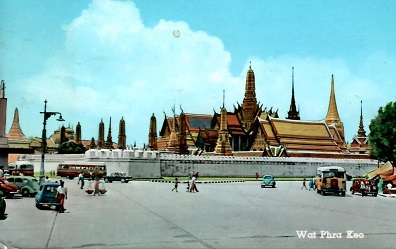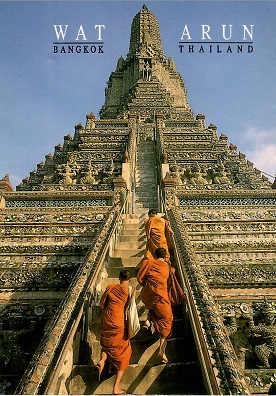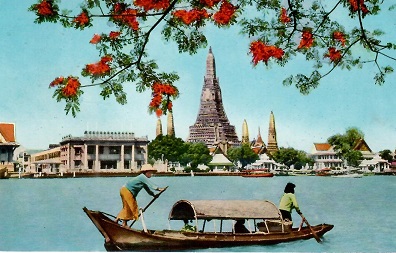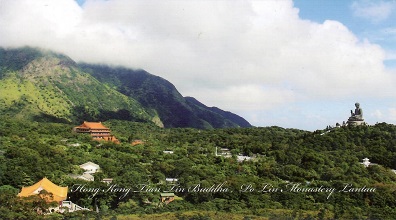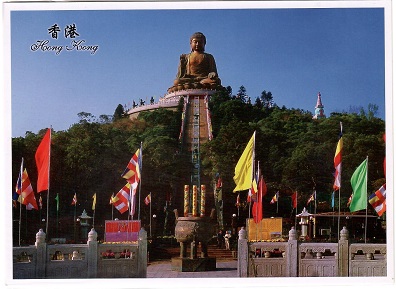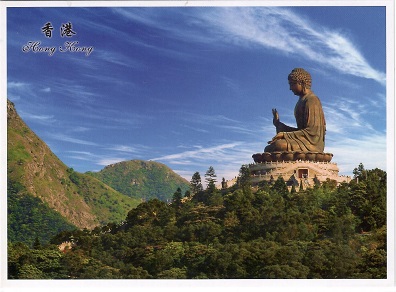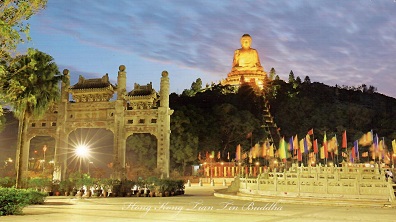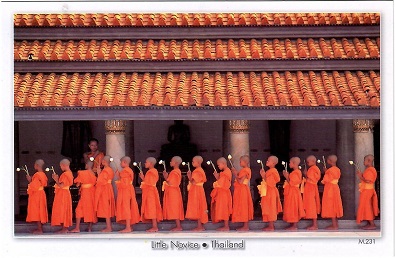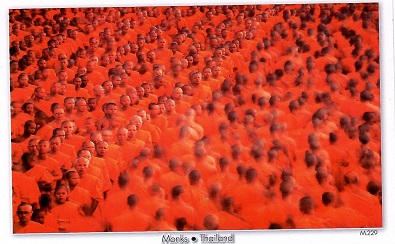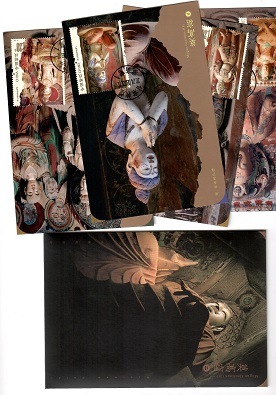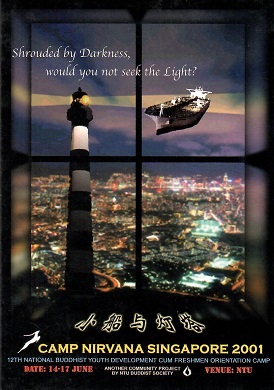-
Okinawa, Benzaiten Shrine (Japan)
From a series of unused cards, captioned (usually) briefly in Chinese, then Japanese, then more of an often-colourful and enjoyable English. For this card: “Build about 470 years ago at the central island of Enkan Pond, and in old time famous canon of Buddhah donated by a Korean Monarch, was said to have been kept here.” Grade: 1
-
Tian Tin Buddha (Hong Kong)
Unused “postcard bookmark” (yes, it says that) measuring 4″ x 7.125″. Grade: 1
-
Hong Kong Tian Tin Big Buddha
Unused card measuring 5.125″ x 7.125″ from the nearby Ngong Ping Village area. Grade: 1
-
Hong Kong by Night II (set of four)
This is a set of four unused cards measuring 4.875″ x 6.5″ and issued by Hongkong Post in 2018, each with pre-printed colour postage and a special philatelic postmark. It is Hong Kong’s Prepaid Picture Card Series No. 58. Our scan shows three of the four cards; the fourth is a time-lapse view of Central District. In the original cellowrap. Grades: 1
-
Shenzhen (PR China), multiple attractions (set of four)
Kindly get your coffee and relax because this description may take awhile. It’s a set of four unused cards, each measuring 4″ x 11-5/8″, so they are well oversized. The red paper wrap identifies this China Post product, from 2018, and our scan shows the front of one card (the other three are similar but with different places) and the reverse of another. All cards have pre-printed, coloured postage and a kind of “shadow” graphic further identifying most of what’s on the front. Clearly these cards fit many of our categories–in fact, they set the record–because Shenzhen is a city of about 15 million people and has everything. As with Waldo, find The Buddha. So, if you have any questions about these Shenzhen postcards, please ask us. Grades: 1
-
Chedee Siliam (Chiengmai, Thailand)
Mailed some years ago (1970s? 1980s?) with large 5-baht stamp and Pattaya postmark. The card shows Wat Chedee Liam, and proves once again that there are almost infinite variations on how to spell Thai place names in western letters. Grade: 1
-
Sukgulam (South Korea) (3D)
Unused 3D (lenticular printing) card whose image does not change when the card is tilted. Still in the original cellowrap. Grade: 1
-
Nosung (Old Buddhist Monk) – South Korea
Captions in three languages (Korean, English, Japanese) link the mask with historic drama. Unused card. Grade: 1
-
The Golden Buddha in Wat Trimit, Bangkok
Mailed in 2019 with two different, large stamps, clear postmark, and blue Airmail label. Grade: 1
-
Samutsongkham, Wat Bangkung
Located in Bang Kung subdistrict, Bang Khonthi district, this area was once set up as a military camp called “Kai Bang Kung” for troops from southern provinces to fight against the Burmese army. It is now famous for this. Unused card. Grade: 1
-
Wat Pho, Reclining Buddha (Bangkok)
Two cards are available. One is unused (Grade: 1, $1) and the other was mailed in 2020 with two large stamps and postmarks (Grade: 1, $3).
-
Morning Alms, Luang Prabang (Laos)
Unused TDN card LVA-391, bilingual Lao/English captions. Grade: 1
-
Wat Mahathat, Ayutthaya (Thailand)
Unused, captioned in Thai and “western”. Grade: 1
-
No Meditation (Nepal)
Unused. Grade: 1
-
The Budda (sic) of Kamakura (Japan)
Unused older card. The front is fine; the reverse has some abrasions from having been in an album. Grade: 4
-
The Great Buddha at Lantau Island 093 (Hong Kong)
This bronze statue was completed in 1993 at Ngong Ping on Lantau Island, near Po Lin Monastery. The statue’s base is a model of the Altar of Heaven or Earthly Mount of Tian Tan, the Temple of Heaven in Beijing. One of the five large Buddha statues in China, surrounding it are six smaller bronze statues known as “The Offering of the Six Devas” that are posed offering flowers, incense, lamp, ointment, fruit, and music to the Buddha. These symbolise the Six Perfections of generosity, morality, patience, zeal, meditation, and wisdom, all of which are necessary for enlightenment. The statue is 34 meters (112 ft) tall, weighs over 250 metric tons (280 short tons), and was constructed from 202 bronze pieces. As a side note, if you Google “world’s largest Buddha”, you will find several choices. This postcard, however, is Tourists Cards series 093 (5-1/2″ x 7″) and unused. Grade: 1
-
Nara, Great Buddha Edifice of Todaiji Temple (Japan)
Tōdai-ji is a Buddhist temple complex that was once one of the powerful Seven Great Temples, in Nara. Though it was originally founded in the year 738 CE, Tōdai-ji was not opened until the year 752 CE. And when background information is presented like that, it’s easier to understand why our eyes glaze over quickly — meaning no disrespect whatever to the temple itself. Please also note, our website offers cards of several other Buddhist temples in Japan but many only are displayed within the “Japan” country category. Have a look. Unused old postcard. Grade: 1
-
Kamakura, The Great Buddha (Japan)
This unused old postcard has a bilingual caption whose English part describes the photo as well as we could: “‘Daibutsu’ has stood rain and wind since 1495 in the ground of Kotokuin Temple.” Grade: 1
-
Nara, Great Buddha (Japan)
Superb unused mid-20th-century postcard. Grade: 1
-
Lampoon, Buddha Image in Wat Hariphunchai (Thailand)
The caption just says it better than we could reconfigure the information: “The Image of the Buddha in Phra Uposatha of Wat Hariphunchai, Lampoon, Northern Thailand”. Card was mailed many years ago, most of the postmark and all of the stamp are there along with two bilingual airmail chops. Grade: 1
-
Hong Kong, Multiple views
Unused Tourists Cards 113, exceptionally not captioned at all, measures 5-1/2″ x 7″. But we can identify all this for you. Clockwise from upper left: Hopewell Centre in Wanchai; the Big Buddha on Lantau Island; a Chinese “junk” of a type no longer seen; and an older view from Victoria Peak area of Central, Admiralty, and Wanchai … much changed now. Grade: 1
-
Damo (A) (PR China)
First, some Wikipedia information about the subject: “Bodhidharma was a semi-legendary Buddhist monk who lived during the 5th or 6th century CE. He is traditionally credited as the transmitter of Chan Buddhism to China, and is regarded as its first Chinese patriarch. According to a 17th-century apocryphal story found in a manual called Yijin Jing, he began the physical training of the monks of Shaolin Monastery that led to the creation of Shaolin kungfu. He is known as Dámó in China … Little contemporary biographical information on Bodhidharma is available, and subsequent accounts became layered with legend and unreliable details. According to principal Chinese sources, Bodhidharma came from the Western Regions, either Central Asia or the Indian subcontinent, and is described as either a ‘Persian Central Asian’ or a ‘South Indian […] the third son of a great Indian king.’ Throughout Buddhist art, Bodhidharma is depicted as an ill-tempered, large-nosed, profusely-bearded, wide-eyed non-Chinese person. He is referred to as ‘The Blue-Eyed Barbarian’ (碧眼胡).” We know that’s a lot to take in but this and the following card are also unusual, unused, and issued officially by China Post. The QR Code will likely tell you even more. Grade: 1
-
Damo (B) (PR China)
See previous card 40100125 for a complete explanation. This one, not the same, is also unused. Grade: 1
-
Greetings from Bangkok, Wat Phra Keo (Thailand)
Westerners find it both amusing and sometimes inconvenient that the Thai language cannot be transliterated exactly into “western” alphabets. This unused card is a perfect example. Yes, it’s the Temple of the Emerald Buddha — no problem there. But on the front it’s spelled as “Wat Phra Keo” and on the reverse it’s “Wat Phra Keaw”. Just a little oddity on a classic Bangkok postcard. Grade: 1
-
Little Novice (M.222) (Thailand)
Unused Maekmai card M.222. Grade: 1
-
Youngs (sic) Novice (Thailand)
Unused Maekmai card M.230. Grade: 1
-
Little Novice (M.232) (Thailand)
Unused Maekmai card M.232. Grade: 1
-
Koh Samui, Big Buddha Temple (Thailand)
Unused Maekmai card KT.501, and we have two of these. Grades: 1
-
Dhonburi, Giant at Wat Aroon (Thailand)
Likely mailed in the 1960s, this card has four overlapping stamps and two indistinct postmarks. “The gardian (sic) of Temple of Dawn”. Grade: 1
-
Bangkok, Wat Phra Keo (Thailand)
With Wat Phra Keo on the front of the card, and Wat Phra Sri Ratna Sasdram on the reverse caption, either way this is Bangkok’s iconic Temple of the Emerald Buddha on a postcard mailed most likely in the late 1960s or possibly early 1970s, with four overlapping stamps and two postmarks. The picture is older than that, though. Grade: 1
-
Bangkok, Wat Arun (Thailand)
Poor Wat Arun, with so many transliterations of its name and location, nobody can be really certain. But we know what the card says: mailed in Thai year 2541 (i.e., 1998 for the rest of us) with two stamps and postmark. Grade: 1
-
Dhonburi, Wat Arun (Thailand)
If we can read the postmark correctly, this card may have been mailed in 1990. Whenever, it has two different stamps and is clean. Grade: 1
-
Lantau, Tian Tin (sic) Buddha, Po Lin Monastery (Hong Kong)
Correctly spelled Tian Tan, and appearing in this overview of the Ngong Ping 360 area on an unused, 4″ x 7-1/8″ card. Grade: 1
-
Ngong Ping, The Big Buddha (Hong Kong) 05
Unused 5-1/8″ x 7″ card, and just FYI, Buddha is 34 meters high and weighs 250 tons. That “05” is the card’s own reference number. Grade: 1
-
Lantau, The Big Buddha 57 (Hong Kong)
Unused 5-1/8″ x 7″ card, and that “57” is the card’s own reference number. Grade: 1
-
Lantau, Tian Tin (sic) Buddha at Ngong Ping (Hong Kong)
Correctly spelled “Tian Tan” but nevertheless, lots to see on this unused, 4″ x 7-1/8″ card from 2017 and sourced at the site. Grade: 1
-
Little Novices (Thailand)
Unused Maekmai card M.231. Grade: 1
-
Monks (Thailand)
Unused Maekmai card M229. Grade: 1
-
Mogao Grottoes (Maximum Cards) (Set of 4) (PR China)
From Wikipedia (edited): “The Mogao Caves, also known as the Thousand Buddha Grottoes, form a system of 500 temples, 25 km (16 mi) southeast of the center of Dunhuang, on the Silk Road, in Gansu province. The caves may also be known as the Dunhuang Caves; however, this term is also used as a collective term to include other Buddhist cave sites in and around that area, such as the Western Thousand Buddha Caves, Eastern Thousand Buddha Caves, Yulin Caves, and Five Temple Caves. The caves contain some of the finest examples of Buddhist art, spanning a period of 2,000 years.” Our scan shows parts of the four cards, issued by China National Philatelic in 2024 as set MC-140, and the cardboard cover. Grade: 1
-
Camp Nirvana Singapore 2001
Unused ad card. Grade: 1

